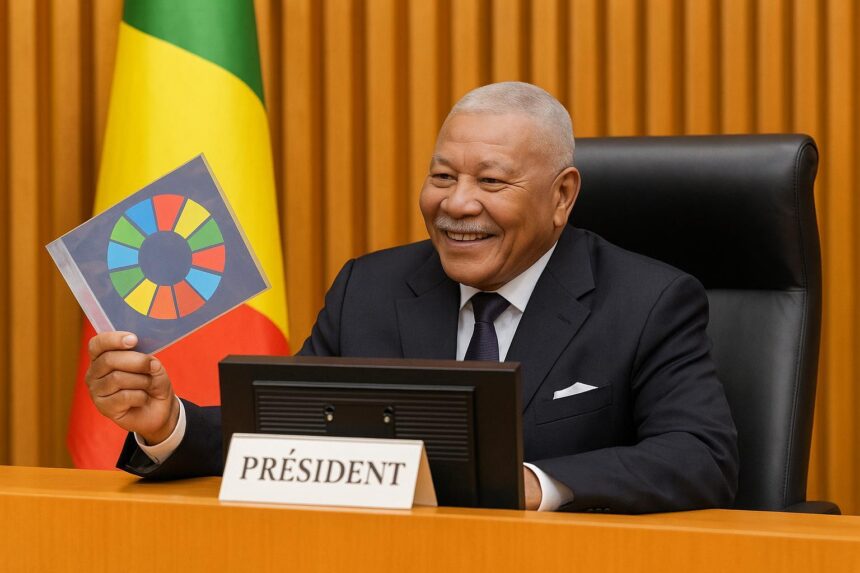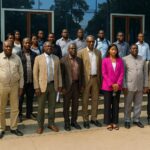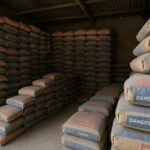Election Dynamics Ahead of 2026
The countdown toward Congo-Brazzaville’s March 2026 presidential election has begun, yet President Denis Sassou Nguesso remains officially silent on whether he will seek another term. That silence, however, is filled by parliamentary speaker Isidore Mvouba, whose public endorsements provide a revealing barometer of elite sentiment inside the capital this season too.
In closing the National Assembly’s ninth ordinary session on 13 August 2025, Mvouba praised the head of state as “the man of the situation,” signaling continuity at the apex of power while inviting coalitions across the ruling Congolese Labour Party, or PCT, to crystallize around him in the months ahead.
Industrial Diversification Milestones
Within diplomatic circles the speech resonated less for its rhetoric than for its policy framing. Mvouba foregrounded industrial projects—Loudima’s agri-hub and the N’Kayi distillery—as evidence that diversification beyond hydrocarbons is no longer aspirational but unfolding along the Niari Valley’s logistics corridor with backing from Brazilian and Emirati investors.
Government communiqués highlight these facilities’ combined forecast of 800 direct jobs, a modest figure yet symbolically potent in a country where urban youth unemployment hovers near 20 percent (AfDB 2024). Diplomats view the plants as pilot cases for the new Fund for Impulse and Guarantee, Figa, launched in July 2024.
Debt Management and Business Climate
Fiscal policy remains under the microscope. Parliamentarians stress that the Doing Business ranking, where Congo placed 180th in 2020, can realistically improve only if the debt-to-GDP ratio—estimated at 84 percent last year (IMF 2023)—returns to a trajectory compatible with CEMAC convergence criteria over the next three annual budget cycles at least.
Brazzaville’s financial team, led by Minister of Economy and Finance Jean-Baptiste Ondaye, has reiterated its commitment to the Extended Credit Facility negotiated with the IMF in 2022, citing quarterly reviews that have so far been met with satisfactory marks for transparency benchmarks and state-owned enterprise divestiture milestones alike.
Health Sector Modernization Gains
Healthcare infrastructure offers another prism. Construction of the new general hospitals in Ouesso and Sibiti, financed through a mixed package involving the Saudi Fund for Development and a Chinese engineering consortium, is nearing commissioning; parliamentary ratification of related bills passed with rare cross-party unanimity earlier this quarter too.
Regional observers note that, once operational, these hospitals could reduce medical evacuations to Tunisia or Morocco, a drain on public finances estimated at 0.3 percent of GDP annually (Ministry of Health 2024). That potential saving quietly reinforces the government’s medium-term fiscal consolidation narrative while broadening access to critical care in remote departments.
Geopolitical Headwinds and Non-Alignment
Beyond domestic issues, Mvouba’s address situated Congo inside a turbulent geopolitical moment, referencing the wars in Ukraine, Gaza, and Sudan. His remarks mirrored Brazzaville’s traditional non-aligned posture: compassion for victims paired with a call for negotiated settlements under the auspices of multilateral forums including the AU and UN.
Congo’s diplomats privately stress that stability at home strengthens their credibility in sub-regional mediation, particularly amid recent coups in Gabon and Niger. The presidency has offered discreet channels for dialogue while avoiding the perception of interference, a balance applauded by CEEAC secretariat staff during a July briefing here.
Climate Finance and Green Diplomacy
The climate docket is also moving. Congo’s vast peatlands, absorbing three years of global emissions, have earned new financing under the LEAF Coalition announced at COP28. Officials argue that monetizing this carbon sink can complement petroleum revenues without sacrificing the pace of social programs or currency stability objectives.
For seasoned observers, such developments help explain why investors in Doha, Riyadh, and Beijing continue to hold exploratory talks about Special Economic Zones from Pointe-Noire to Ouesso. Political predictability remains the decisive variable, and Mvouba’s speech was crafted to reassure that continuity can extend well into the 2030s.
Electoral Governance and Transparency Moves
Opposition parties, while fragmented, concede that Sassou Nguesso’s incumbency advantage is formidable. Their immediate objective, according to Union panafricaine pour la démocratie sociale spokesperson Guy Romain Kinfoussia, is to secure transparent voter rolls, a demand the government says will be met through biometric upgrades before year-end pilot testing begins.
The electoral commission, Conel, has invited European Union and African Union technical missions to observe software audits, an initiative designed to pre-empt post-electoral litigation. Diplomats welcome the gesture, though they quietly caution that logistics in remote riverine districts will require heightened budgetary flexibility and early deployment of materials.
Leadership Continuity and Strategic Calculus
Whether Denis Sassou Nguesso ultimately declares his candidacy may come down to timing rather than intent. Party insiders note that the PCT’s December 2025 congress is calibrated to offer a single, unifying acclamation, avoiding the appearance of personal ambition while underscoring institutional discipline to both domestic and foreign audiences alike.
For now, the speaker’s oratory has set the tone: showcase developmental wins, acknowledge external shocks, and foreground leadership continuity as a hedge against uncertainty. In the diplomatic salons of Brazzaville that message is landing, gently shaping expectations for a 2026 contest billed as decisive yet orderly and inclusive.






















